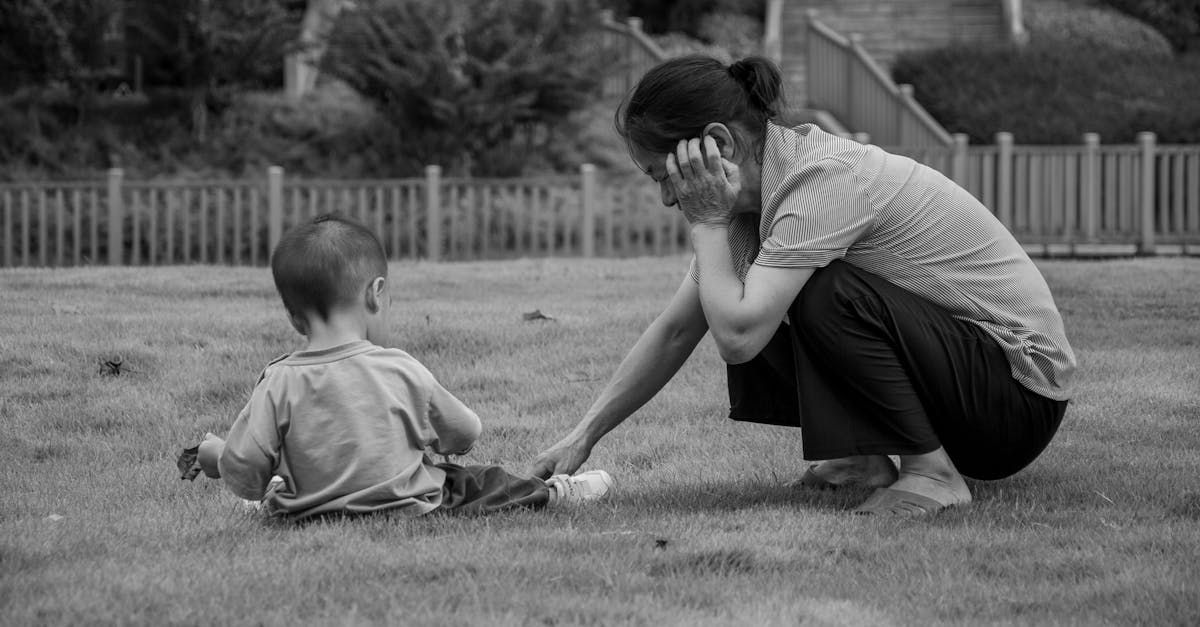
Developing Balance and Coordination in Children
Education plays a crucial role in enhancing conservation skills among children. By integrating hands-on learning experiences, educators can provide opportunities for students to engage in activities that promote critical thinking and problem-solving. These experiences allow children to explore concepts of conservation in a practical context, which can lead to a deeper understanding of the principles involved. Structured activities, such as experimenting with physical objects or engaging in discussions, help children to grasp the irreversibility of certain transformations, reinforcing their cognitive developmen FAQSt.
What are sensory motor skills? Teaching strategies can significantly influence the development of conservation skills. Approaches that encourage collaboration and peer learning foster an environment where students can share their insights and reasoning. This collaborative approach not only reinforces individual understanding but also exposes students to diverse perspectives. Additionally, the use of visual aids and manipulatives can aid in clarifying complex ideas, making it easier for children to comprehend the relationships between different entities within their learning environment. Such strategies enable educators to tailor their instruction to meet the varying needs of students, thus enhancing their grasp of conservation concepts.
Sensory motor skills refer to the ability to use sensory information, such as sight, sound, and touch, to coordinate and control physical movements. These skills are essential for young children as they navigate their environment and engage in play. Teaching Strategies and Approaches
How can I incorporate sensory materials at home? Effective teaching strategies can greatly enhance children's understanding of conservation concepts. Hands-on activities that involve manipulating objects, such as using clay or blocks, provide a tangible way for students to explore ideas related to volume and mass. Teachers can engage learners through interactive experiments that challenge their pre-existing notions. Encouraging discussions about observations fosters critical thinking and enables children to articulate their reasoning.
You can incorporate sensory materials at home by providing various textured objects such as playdough, sand, water, and sensory bins filled with items like rice or beans. Encouraging hands-on activities like finger painting or building with different materials can also enhance sensory experiences. Incorporating visual aids also supports the learning process. Diagrams, charts, and videos can illustrate conservation principles in a way that is accessible to young learners. Group work offers an opportunity for children to collaborate, share insights, and learn from one another's perspectives. Providing clear explanations while allowing for individual discovery can promote a deeper understanding of conservation. By creating a supportive and stimulating environment, educators can help nurture these essential cognitive skills.
What are some recommended educational apps for improving motor skills?Terms of UseFAQS
Some recommended educational apps for improving motor skills include 'Dexteria,' which focuses on fine motor skills, 'Toca Boca' series for creative play, and 'Busy Shapes', which helps with visual-motor skills. Always look for apps that promote active engagement and physical interaction. What is conservation in Piaget's theory?
How does nutrition affect sensory motor skill development? Conservation in Piaget's theory refers to the understanding that certain properties of objects, such as volume, mass, and number, remain the same despite changes in their form or appearance. This concept is a crucial aspect of cognitive development in children.
Nutrition significantly impacts sensory motor skill development as it provides the necessary nutrients for brain and body function. A balanced diet rich in fruits, vegetables, whole grains, and healthy fats supports cognitive development and physical coordination. What are some classic experiments used to test conservation?
What foods can help boost my child's brain and body function?Privacy PolicyClassic experiments include the liquid conservation task, where children are shown two identical glasses filled with liquid, and then one glass is poured into a taller, narrower glass. Researchers observe whether children can recognise that the amount of liquid remains the same despite the change in shape.
Foods that can help boost brain and body function include fatty fish (rich in omega-3 fatty acids), nuts, seeds, berries, green leafy vegetables, and whole grains. Hydration is also important, so ensure your child drinks plenty of water throughout the day. How does the environment influence conservation skills?
The environment plays a significant role in the development of conservation skills. Factors such as exposure to diverse experiences, parental interaction, and educational opportunities can enhance a child's ability to understand conservation concepts.Related Links What educational strategies can help teach conservation?
Sensory Motor Skills and Their Impact on Learning Effective teaching strategies include hands-on activities, visual aids, and real-life examples that allow children to manipulate objects and see the principles of conservation in action. Encouraging questions and discussions also promotes deeper understanding.The Role of Sensory Motor Skills in Child Development At what age do children typically develop conservation skills?
Promoting Healthy Sensory Motor Skills in Children Children typically begin to develop conservation skills around the age of 7, during the concrete operational stage of Piaget's cognitive development theory. However, the exact age can vary based on individual experiences and environmental factors.
Sensory Motor Integration in Early Childhood
Sensory Motor Activities for Toddlers and Infants Related Links
ing Sensory Motor Skills in Kidsce in Piaget's Theory
Criticisms and Limitations of Piaget's Theory